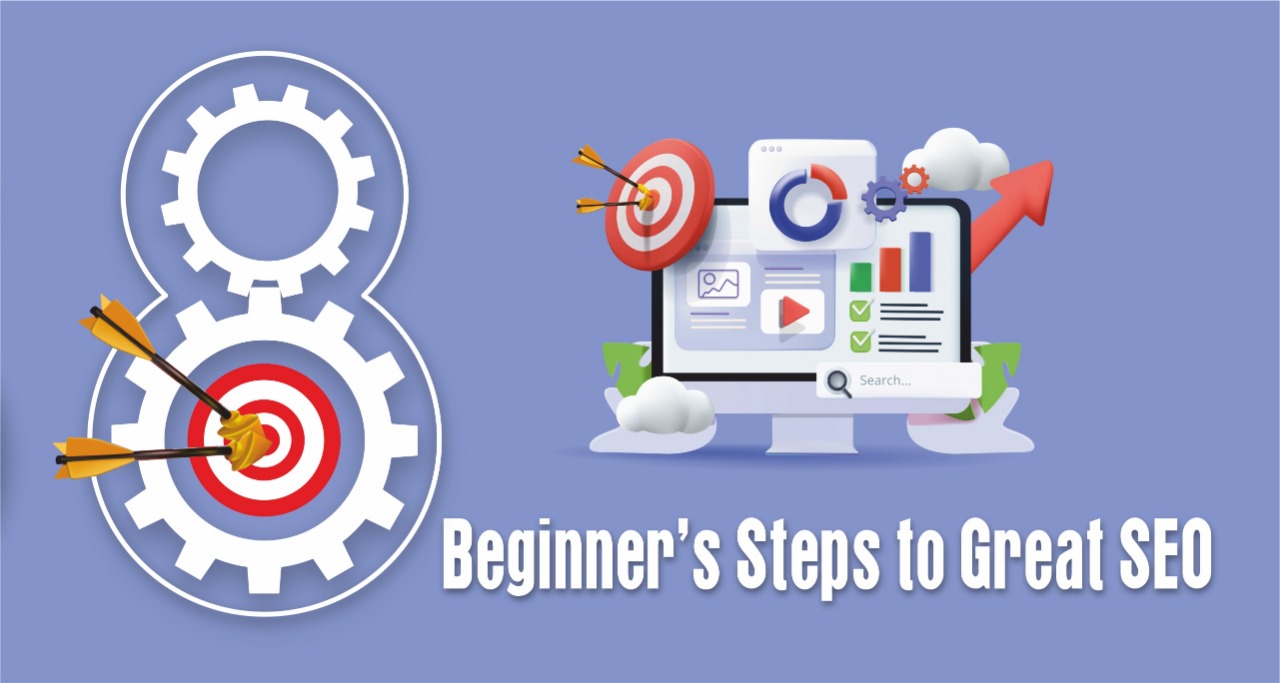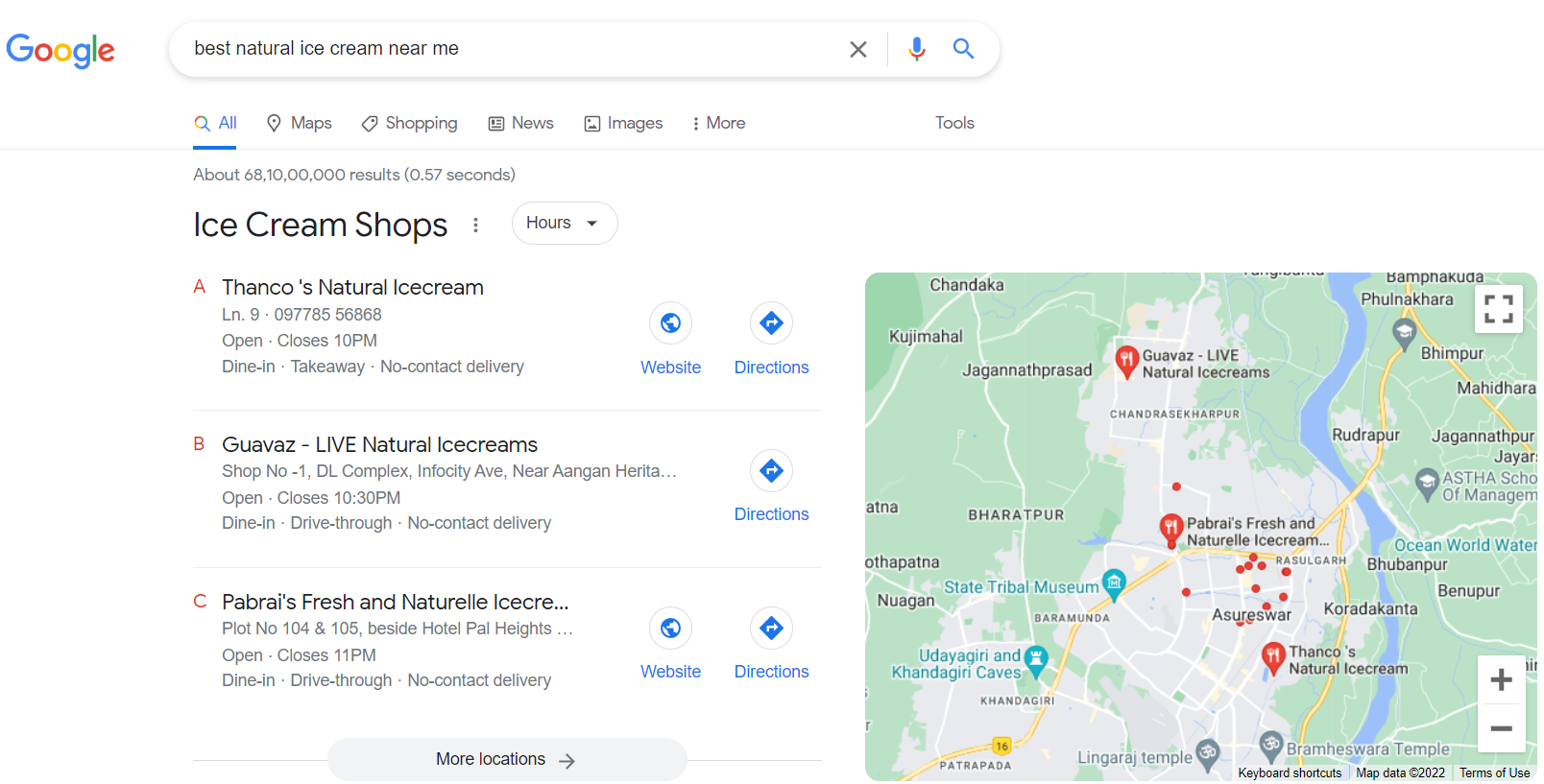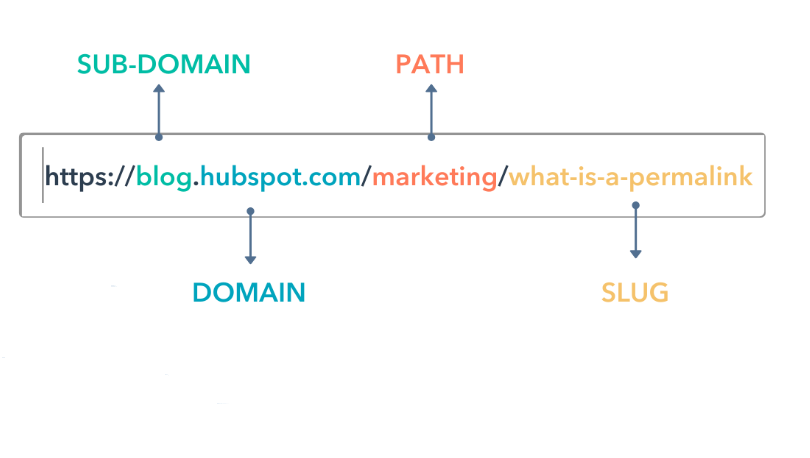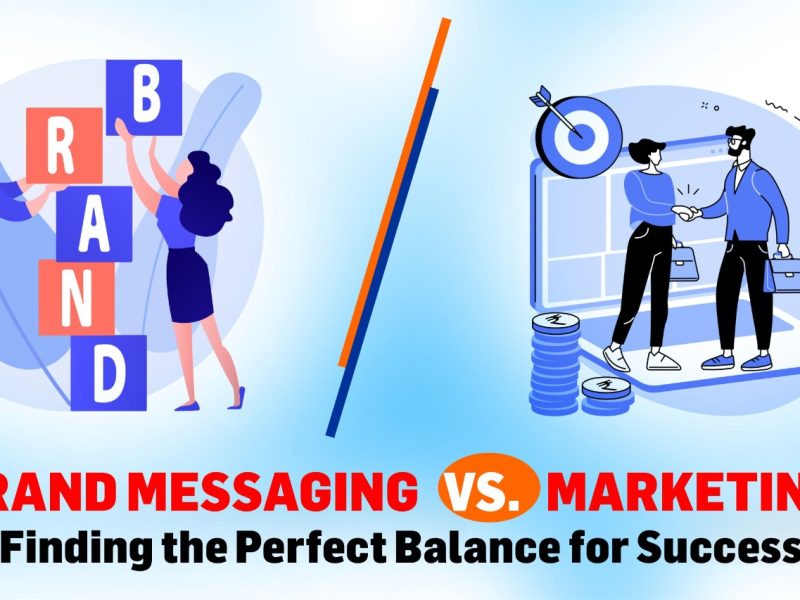
8 Beginner’s Steps to Great SEO
Digital Marketing is becoming widely popular & essential for every brand out there wanting to succeed. The audience, potential customers & followers are on the internet connected 24/7. It’s the perfect setting you could have asked for your brand. Then again, it’s also perfect for all your rival brands and they are already there grinding to get on top of the search result. What you need is exceptional “Search Engine Optimization” a.k.a SEO that keeps your brand on the top of every relevant search result!
SEO might seem like an alien concept if you have never heard about it. Don’t worry, we’ll give you a headstart with 8 beginner’s steps in SEO that will help you get started. Having a good SEO plan is beneficial to ruling the digital marketing space.
What is SEO?
Without talking about technical jargon that will confuse you, let’s try to understand it in simple terms. Imagine, it’s a hot day & you are craving ice cream. But not the clunky store-bought ones, you want the real natural ones. You turn to your most knowledgeable & reliable buddy: Google.

Google works its magic and presents you with a list of the best-in-town ice cream joints with all kinds of parameters for you to judge. Location, rating, contact info, timing, the whole deal. It makes your search worthwhile, saves time and just makes your life a whole lot easier. Now, in normal consumerial behaviour, you will choose one of the top 3 options, right? Why scroll through and waste your time when you get a curated list of exactly what you searched for?
But there’s a whole backend process that brands are constantly refining to secure the top 3 positions. Because they know you (internet users in general) won’t trouble yourself to go beyond that unless you’re looking for something specific. And that is what SEO means. Optimizing the search engine a.k.a. Google. Hence, the name Search Engine Optimization: SEO.
Optimising your website, social media handles, app, etc., to be more search engine friendly is going to help you a lot in the long run. It helps you generate high-quality web traffic & organic discovery. These results are what brands strive for. But if you don’t understand the nitty-gritty of it, now is the time to learn. Just read this blog for in-depth knowledge of SEO.
Let’s take a look at the 8 beginner’s steps to better your brand’s SEO :
1. Find Relevant Keywords
It is really as simple as it sounds. The task is just to find relevant keywords that your brand or business uses on a daily basis. For example, if you are a local cafe owner who wants to promote your location on Google, your relevant keywords would be “best cafe in town”, “local cafe near me”, “espresso coffee near me”, etc.
Start with simple words. It doesn’t have to be too critical. You can also use a keyword research tool. But as a beginner, we would recommend you not to spend big bucks on only keyword research and go with common topics.
2. Put the Keywords in the Page Title
The first thing people notice about your website is the page title. Google also highlights it on its page. The more you target good keywords in your page title, the better your chances are of appearing in the top search list. If you own a local business, make sure to put in the city’s or town’s name to attract more local customers.
Take a look at this example of a barbeque restaurant’s page title. Notice how it uses the keyword of “Best Barbeque Restaurant” in the title.

3. Put the Keywords in the Page URL
Uniform Resource Locators sounds very scary, isn’t it? It’s the long form of URL. If you’re from a technical background, you might know what it means. But if you aren’t, it’s basically the text map to your website. Having proper keywords in the URL also has a great effect on search volume. It can help you rank your website higher as Google uses URLs to specify the content of the website. But don’t overdo it. Keep it simple, descriptive & short. That’ll do the trick well.
Here’s an image to explain the URL better below. The slug is the part where you insert the keyword in.

4. Put the Keywords in Meta Description
The Meta Description is a small sneak peek of your website on Google. Although meta description isn’t as important as it used to be in the SEO world before, you can still leverage it for good rankings with keywords. The meta description should be simple and understandable. You have 160 characters in total. So, make proper use of it.

5. Put the Keywords in the H1 Text
Google and search engines put extra attention on H1 text when they crawl/search any particular page on a website. An H1 text is nothing but the headline or any bold text on the website page. It is a great way to incorporate your keywords into the H1 text so that Google can rank your page accordingly.

6. Put the Keywords in Content
Using the right keywords is an essential part of an on-page SEO strategy. Some brands try to overstuff their content with keywords, but it’s a black hat SEO technique that has detrimental effects on your website. So, don’t sweat it. Just sprinkle your keywords effortlessly in the needed space and keep it organic. If you have a blog page on your website, try to find topics that are relevant to your products & services. That way your keywords inclusions won’t seem forced and will be more seamless.
7. Build Inbound Links to Your Website
Inbound links are like easter eggs for your website. It makes viewers’ experience unique with new information, makes them stay for more time on your website and also has great benefits SEO-wise. Making inbound links is one of the most important SEO techniques. If people are using your website’s content as citations, that makes your website very trustworthy. Now, getting inbound links, especially if you’re new in the arena, might be very tough. Therefore, you need to work on your content first and if possible, make good connections with relevant websites in your industries to show they cite your website.
8. Track Your Rankings
Now, time to check out the results of your hard work. You need to keep an eye out on your rankings at regular intervals. The keywords you’re targeting are also being used by your rivals. If you don’t keep on optimizing your content, your rank will drop. Therefore, whenever you see any decline in rankings, you need to work hard on the particular keywords & come up with new strategies to keep your positions on top.
Now, there are SEO monitoring tools in the market that let you keep track of things for a price. But if you are a beginner, we recommend you use Google’s search console & analytics to get a fair idea first before going on to paid methods.
SEO is purely a technical strategy to boost your brand’s online presence. Apart from the 8 beginner steps that we mentioned, there are much more things that come on the SEO bandwagon that need your attention. Managing that with the operations of your business can be cumbersome at times. Therefore, look for a top advertising agency that can provide you with great SEO service so your business can thrive!
About Author
Sandeep Hati is a copywriter at Sanket Communications. He is passionate about advertising trends and stories. He aims to explain the many intricacies that run the advertising and marketing world. When he’s not working, you’ll find him buried in a book or watching period cinema or failing gloriously on the same level of video game infinitely.




